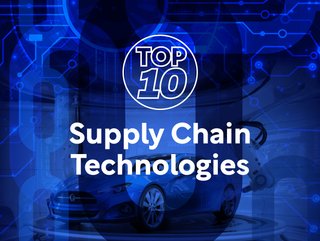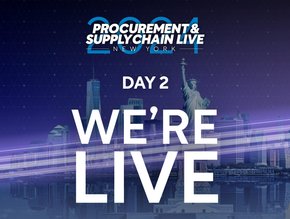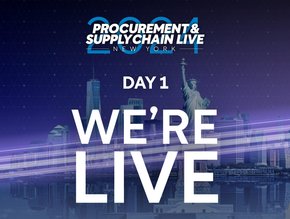
Weaknesses in supply chain were exposed by Covid, the Suez blockage and other supply chain shocks, not least Russia's invasion of Ukraine.
Today's world demands that supply is built on connected networks rather than unwieldy chains that span the globe and are vulnerable to everything from political unrest and extreme weather events and labour disputes, among many other things.
Technology is key to helping businesses reshape supply chain, and here are 10 of the most important forms of it.
10. 3D Printing
Additive manufacturing – better known as 3D printing – has come a long way since the early 1980, when it produced only plastic prototypes. Now, it can produce a wide range of finished goods from materials including metal, concrete, plastics, resins and even food.
Businesses looking to shorten supply chains and minimise risk see 3D printing as a way of increasing speed to market and reducing global impact by limiting the shipping of goods around the globe. 3D PRINTING 3D printing technology allows organisations to create prototypes and products on demand, reducing lead times and costs
9. Autonomous vehicles
Autonomous vehicles, such as drones and self-driving trucks, can reduce costs and improve delivery times by reducing human error and optimising route. Uber Freight recently deployed Volvo’s autonomous transport solution on selected routes, starting in Texas.
Through the integration of vehicle-to-vehicle comms and radar-based collision avoidance systems, ‘platoons’ of trucks can be managed by cloud-based networks that connect trucks through mobile comms and Wi-Fi.
Top companies: Uber Freight, Volvo Autonomous Solutions, Waymo
8. Augmented/virtual reality
VR and AR technology helps organisations visualise and simulate supply chain operations, improving decision-making and reducing errors
AR can create virtual stockrooms for organisations by projecting holographic products onto shelves. Employees can check specifications like colour and size without accessing a physical product, and make an informed decision when placing an order, so saving organisations store room space and money on unwanted products.
Top companies: ScienceSoft, ScaleXM, PTC
7. Blockchain
Supply chain often lacks traceability and transparency, and blockchain technology has the potential to revolutionise supply chain management by providing increased transparency, security, and efficiency. It is significantly changing how retailers and consumer-packaged-goods manufacturers in particular run their supply chains.
The need for secure transactions and the demand for ESG and sustainability transparency are driving how buyers relate to brands.
Blockchain is meeting these needs by guaranteeing the provenance of goods, as well as the security of supply chain transactions.
Top companies: Ethereum, IBM Blockchain, Cardano
6. Internet of Things
IoT comprises billions of sensors that are embedded in various devices, both within the supply chain but also the wider world, like fridges and cars. By 2030, Deloitte predicts up to 10 trillion sensors will be deployed.
The rise of IoT devices offer a wealth of benefits across global supply chains, helping businesses streamline supply chains, increase efficiency, reduce costs, and improve visibility.
IoT allows for data-exchange over the Internet, and can leverage actionable data from every step of the supply chain. It’s now used for locating materials, servicing equipment and monitoring productivity and efficiency.
5. Big data
Big data is high-volume, high-variety information that enables enhanced insight, decision making and process automation. Data analytics is the science of analysing raw data in order to make conclusions about that information.
Until relatively recently, the lack of capabilities around manageable data hindered its usefulness but organisations today have a host of new technologies to help with procurement, supply chain risk management, and sales & operations planning.
Top companies: Salesforce, AWS, Noodle.ai
4. Digital twins
AI and ML-based analytics is now used to mitigate risk and ensure continuity through global supply chain disruptions. Powerful solutions such as digital twins enable organisations to provide deeper insight for faster, better decisions around supply chain operations, enabling organisations to identify inefficiencies and make improvements.
A digital twin is a virtual supply chain replica that represents assets, warehouses, logistics and material flows, as well as inventory positions. It can stress-test potential operational and financial risks and impacts created by major market disruptions, disasters, or other catastrophic events.
3. 5G
5G tech provides faster, more reliable connectivity, enabling organisations to improve communication and collaboration across the supply chain
The use of 5G in supply chain operations helps provide visibility. Today, smart sensors can be used to collect and analyse supply chain data in near real time. Because of 5G’s potential to support mobile devices at scale, it’s possible to track a company’s entire supply chain with greater accuracy.
2. Robotics
Robots have been used in industrial manufacturing for decades, but are increasingly being adopted in warehouses, as well as fulfilment and distribution centres. Robotic automation is helping to offset problems posed by rising labour costs and labour shortages.
One supply chain innovation making particular inroads is the collaborative robot, or ‘cobot’ With the help of AI and machine learning, cobots are now sophisticated enough to pick and pack orders alongside humans guiding them through tasks, lifting heavy objects, and fetching products from vast warehouse aisles.
1. Artificial intelligence / Machine learning
AI and machine learning is playing an increasingly important role in the supply chain industry, allowing companies to optimise and streamline operations in many areas.
Automation is a big area of AI growth, with many supply chain processes, such as order processing, inventory management and logistics, benefitting from reduced staffing needs, alongside savings on time and costs. AI can also monitor the quality of products as they move through the supply chain, inspecting products for defects or anomalies.
******
Make sure you check out the latest edition of Supply Chain Digital and also sign up to our global conference series - Procurement & Supply Chain 2024
******
Supply Chain Digital is a BizClik brand
- Arvato & Microsoft: Developing the Warehouse of the FutureDigital Supply Chain
- Körber: Enhancing Warehouse Efficiency at S&S ActivewearDigital Supply Chain
- Nokia: Putting 5G at the Heart of Connected LogisticsLogistics
- BEUMER Group’s Vision for the Warehousing Operations of 2035Operations







